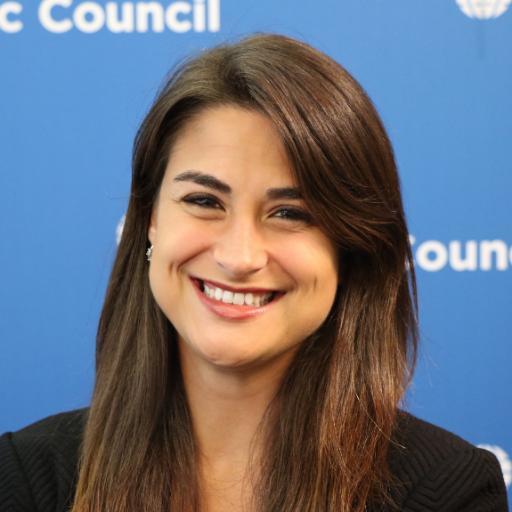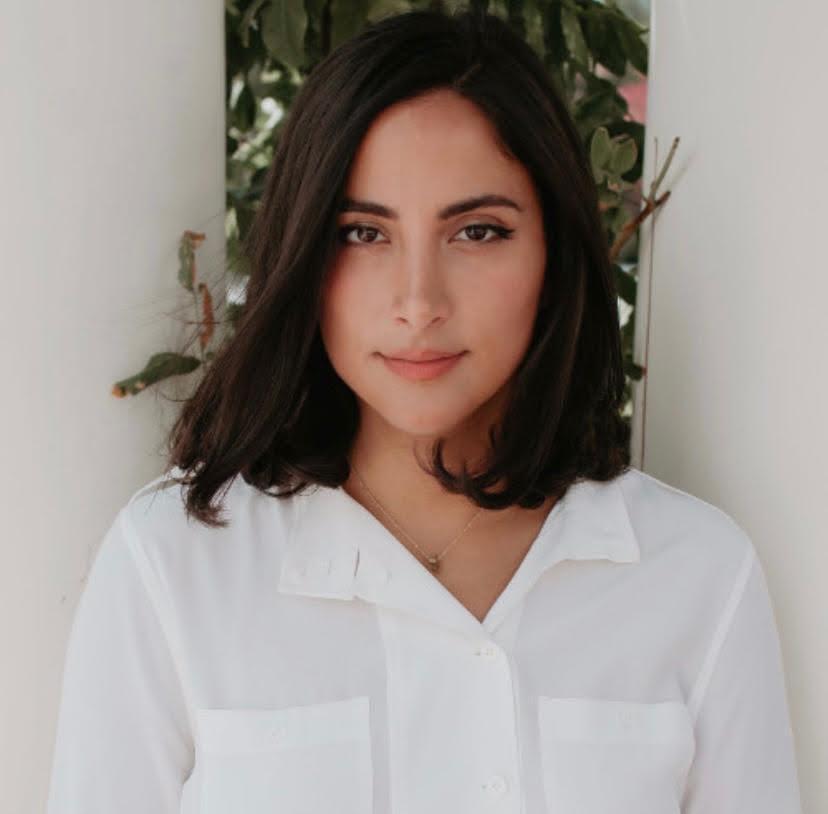The success of the Trade, Investment, and Development program is largely based on the connections our students have been able to make with alumni. Many of the program's alumni have been featured on panel discussions and have served as adjunct professors at the law school. For those alumni who wish to get involved in some way, feel free to contact the program at internationaltrade@wcl.american.edu
Alumni

Roberta Braga is a non-lawyer who participated in AUWCL’s WTO & U.S. Trade Policy summer program over the summer. Roberta works in the “think tank” world where she’s been exposed to various trade-related themes, but she believes this program allowed her to dive deeper into the technical side of things in a flexible way that worked with her own schedule. The program had a versatile combination of lectures and video recordings, as well as Q&A sessions that were useful for her as a working professional. Roberta found the covered topics extremely beneficial, specifically, Trade Remedies, Trade in Services, and Dispute Settlements. These classes taught Roberta a level of depth that she previously did not have an opportunity to achieve. Especially since she lacked a background in trade, Roberta felt these courses offered her a much-needed refresher on the history of the WTO and other relevant bodies, which provided her with a foundation of the important and relevant legal frameworks.
In particular, Roberta enjoyed the USMCA and Regional Trade Agreements lectures, as well as the Trade Linkages session on investment, climate change, labor, and the Trade in a Post-Pandemic World session. She found that the practical combination of coverage on salient topics and future trends added a lot to what she could apply in her day-to-day work. The program also brought together a wonderful host of experts from different countries and backgrounds who provided case studies from regions that Roberta hadn’t been exposed to, something she found incredibly interesting and of value.
As a non-lawyer, Roberta enjoyed how quickly the program was able to immerse her into the wide breadth of subjects while providing in-depth overviews of important technical issues. Following her completion of the program, Roberta was able to apply the lessons she learned to her work at the Atlantic Council and in her current role with Baker McKenzie. In the future Roberta hopes to learn more about the perspectives of other country representatives on USMCA, along with other bilateral and multilateral trade agreements.

Savannah Maxwell graduated from WCL recently in 2019. Currently, she is working in the Office of the Chief Counsel for Trade Enforcement and Compliance at the U.S. Department of Commerce. Prior to law school Savannah originally went to college for veterinarian studies until taking political science classes changed her mind, so she switched her degree to international global studies. She entered law school with a plan to pursue international human rights but later realized that human rights can go hand in hand with trade law. Serving as a Dean’s Fellow for Professor Ala’i with the trade program, Savannah quickly recognized her love for trade. She took advantage of WCL’s amazing abroad opportunities, which included studying at the World Trade Organization in Geneva, Switzerland. Savannah also partook in the European Law Association’s moot court competition. Collectively, these experiences helped her realize that trade and international negotiations can impact human rights issues immensely.
Savannah feels strongly that WCL has an excellent trade course selection that most will not find anywhere else. She advocated for classes like Professor Ala’i's international trade course, the Export Controls and Sanction Course, as well as many others that give students an idea of the area of trade law along with flowing opportunities to meet and converse with alumni. Savannah emphasized that the trade program at WCL is a great opportunity for aspiring lawyers to simultaneously dip their toes in different areas of the law, and she advised that the best thing you can do while in law school is intern: “it’s helpful to be able to speak the language and have experience in some area of WTO, trade remedies, customs, or sanctions.”
Savannah shared that law school is great for giving students skills to implement, but when it comes to practicing, “there will always be things that you aren’t prepared for.” She strongly encourages aspiring trade lawyers to spend time with the government since it gives you understanding of the sort of decisions being made how they inherently influence trade. Through her work with the government and the DOC, she’s come to recognize that trade is inherently administrative law and has gained a great perspective on how things are done at the DOC, ITC, or by administrative authorities. Savannah encourages aspiring lawyers to apply to internships at the ITC, CPB, Treasury, the Court of International Trade, or even the Federal Circuit Court of Appeals where international trade cases get appealed to. Simply putting yourself in the realm of where important trade matters are taking place will help aspiring trade lawyers gain traction, and WCL’s trade program is ideal for helping law students launch into those opportunities.

Shaya Tavaf graduated from WCL in May of 2019. Currently, she works as an Attorney Advisor International for the Commercial Law Development Program (CLDP) at the U.S. Department of Commerce. Leading up to law school, Shaya received her bachelors from Boston University in international relations with a focus on foreign policy studies in the Middle East. Her experiences at BU led her interest in diplomacy, and upon recognizing her passion for oral advocacy, Shaya knew a law degree could be her steppingstone. During her first year at WCL, she decided to focus on international law and applied for the study abroad opportunity in Geneva, Switzerland. While in Geneva, Shaya learned about the WTO and the dispute settlement system; this abroad experience set Shaya up to focus the remainder of her law school career preparing for a future in trade law.
Since graduating from WCL, Shaya has enjoyed her experience with the Department of Commerce. Shaya was initially hired as a trade attorney to oversee all of Afghanistan’s trade and WTO portfolio. Through the CLDP’s office within the General Counsel, she also worked with partner countries to develop their business regulations and laws. Currently, Shaya is focused on a project collaboration with the U.S. Department of Labor, which she said was inspired by her experience at WCL: as a prerequisite to the Geneva program, Shaya took a Trade and Labor course. “They had practical exercises where students negotiated trade agreements that incorporated labor agreements within them.” Reflecting on those exercises, Shaya sees the skills she gained during law school translate into her current role. “We need to ensure those partner countries have compliance with internationally recognized labor standards,” which is a huge focus of her administration.
Shaya encourages future trade lawyers to take risks: make cold calls, send unprecedented e-mails, and if the outreach isn’t immediately fruitful, then follow up and be direct with exactly what you’re looking for. She encourages students to be clear in their requests, e.g. asking for 10-30 minutes of that person’s time, and use that time to leave an impression showing you’ve done your research. Shaya believes diligence, showing passion, and conveying interest through those conversations will go a long way.
Shaya is fortunate to have graduated from WCL due to the robust law curriculum that’s not ordinarily available at other law schools. She encourages students to take advantage of those curriculum, the professors, associations, and the moot court program. Another aspect of WCL that Shaya adamantly praised was Professor Ala’i’s certificate program held over the summer. She found the program not only beneficial for new lawyers, but also for practicing attorneys who need the refreshers on the developments in trade law.

